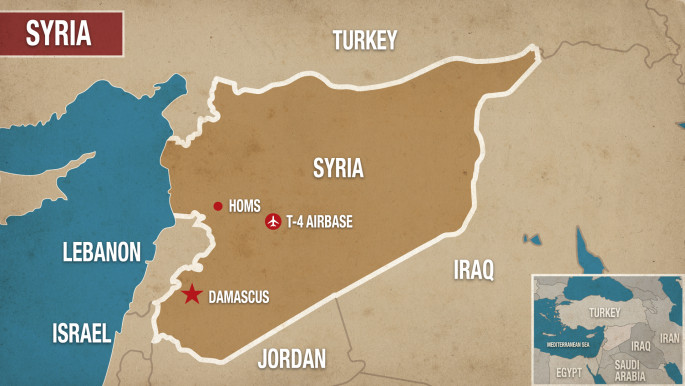Russia attempts to turn Syrian rebels against al-Qaeda's Nusra
Moscow's version of the Sahwa is reportedly part of its plan to lower the costs of intervention and avoid committing Russian boots on the ground in the fight against the Islamic State group and al-Qaeda's affiliate in Syria.
The Syrian Sahwa would be put together from Syrian rebel groups Moscow intends to co-opt, to pivot their hostility from the Syrian regime and its allies to jihadists like the Nusra Front and IS.
"Some predicted [Syria] would be another Afghanistan or something else. That will never happen. This is a targeted, limited military plan," Russian Security Council Deputy Secretary Yevgeny Lukyanov told Interfax on Tuesday.
"We are not Syrians. We are not going to fight for Syria there. They have to resolve their issues themselves. We are helping, but you can see the limited format," the Kremlin official further claimed.
 |
Moscow is expecting the 'moderate rebels' to split with the Nusra Front |  |
Moscow is expecting the "moderate rebels" to split with the Nusra Front, al-Qaeda's Syrian franchise, said Nikolai Patrushev, secretary-general of Russia's Security Council.
Russia's Defence Ministry is understood to have postponed a series of planned airstrikes on rebel position until a number of armed groups have completed their disengagement from Nusra.
Eyes on Homs
In these "national reconciliation" formulas, rebel groups would agree to stop fighting regime forces and their allied militias, and take the fight to Nusra and IS, in return for an end to the bombardment of their areas and the entry and delivery of much-needed humanitarian aid.
Our sources said this has already started happening in some areas of Eastern Ghouta, with rural areas north of Homs, Aleppo and Damascus slated next for the Russian plan.
"The Russians are communicating with rebel groups in the Homs countryside, offering guarantees not to carry out strikes and artillery shelling on them and to bring in aid to their areas," local sources told The New Arab.
In return, they would enter into a long-term truce with the regime until a political settlement is reached, the sources added, pointing out that fighting "terrorist groups" such as the Nusra Front and IS would be part of the deal.
 |
The factions being contacted by the Russians include the Homs Battalion, the Homs Liberation Movement and Jaysh al-Tawhid |  |
The factions being contacted by the Russians, according to these sources, include the Homs Battalion, the Homs Liberation Movement and Jaysh al-Tawhid.
No contacts have been yet made with Ahrar al-Sham, which operates across Syria, as the focus of the Russian effort seems at present to be in the Homs countryside.
These factions do not have ties to Nusra, and may even be hostile to the al-Qaeda-linked group, the sources explained.
Ahrar al-Sham
The relationship between Ahrar al-Sham and the Nusra Front is complicated. The Islamist Ahrar al-Sham is yet to declare a clear stance on aligning with or rejecting the jihadist group.
Many leaders from both groups come from the city of Homs. Moreover, both groups were formed by inviduals loyal to al-Qaeda.
"Ahrar al-Sham is facing a dilemma with regard to fighting the Nusra Front," said a source close to the group. "Having many cadres from Homs in both factions makes in-fighting unlikely; 120 from al-Rastan [the third-largest town in the Homs province] fight with al-Nusra, and 400 with Ahrar al-Sham."
 |
Ahrar al-Sham is facing a dilemma with regard to fighting the Nusra Front |  |
This appears to be why the Russians have treated both groups in the same manner.
By contrast, the other factions in Homs have "external loyalties", claimed the source, and are hostile to al-Qaeda's ideology.
"The Homsi factions are backed by individuals who are in contact with the Russians for some kind of deal, and there are reports of meetings between them in Europe for the same purpose," added the source.
Aid for loyalty
"The Russians are also contacting civil and aid groups, offering support in return for putting pressure on factions and local residents to accept the [Russian] project," said opposition sources in Homs.
The Russians, they added, were taking advantage of sieges and a shortage in basic supplies and medicine.
This, they fear, could compel rebel groups and civil organisations to comply - in the absence of support from the countries that once backed them.
Villages in the northern countryside around Homs have been under siege for four years, with tens of thousands of residents suffering.
Meanwhile, the healthcare and education systems in the area have all but collapsed, with skyrocketing poverty rates.






 Follow the Middle East's top stories in English at The New Arab on Google News
Follow the Middle East's top stories in English at The New Arab on Google News


